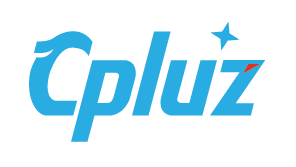In today’s digital world, having a website is essential for businesses and individuals alike to establish an online presence and reach a wider audience. One of the decisions that must be made when creating a website is choosing the right hosting solution. Two popular options are managed hosting with a web host provider or DIY (Do-It-Yourself) website hosting using platforms like WordPress.com, Wix, or Squarespace. In this article, we will explore the pros and cons of DIY website hosting to help you make an informed decision for your online project.
**Pros of DIY Website Hosting:**
1. **Cost-Effective:** One of the most significant advantages of DIY website hosting is the cost. Platforms like WordPress.com, Wix, or Squarespace offer affordable pricing plans, often with a free option for basic websites. These solutions cover the hosting and maintenance costs, allowing you to focus on creating content.
2. **User-Friendly Interface:** DIY website hosting platforms are designed to be easy to use, even for those without extensive technical knowledge. They offer drag-and-drop interfaces, customizable templates, and a wide range of features to help you create a professional-looking website quickly.
3. **All-in-One Solution:** With DIY website hosting, you get an all-in-one solution that includes hosting, domain registration, design tools, and content management system (CMS) in one package. This can save you time and resources as you don’t need to source these components separately.
4. **Quick Setup:** Setting up a DIY website is typically a straightforward process. Most platforms provide step-by-step guides or offer customer support if needed, making it an ideal choice for those who want their site live as soon as possible.
5. **Regular Updates and Security:** Reputable DIY website hosting providers take care of regular updates to their platforms, ensuring you have the latest features and security patches. They also provide SSL certificates, firewalls, and other security measures to protect your site and data.
**Cons of DIY Website Hosting:**
1. **Limited Customization:** While DIY website hosting offers a wide range of templates and customization options, they may not be as extensive as what you can achieve with a self-hosted WordPress installation or other CMS systems. If you need more advanced features or unique designs, managed hosting might be a better choice.
2. **Limited Control:** With DIY website hosting, you have less control over the underlying infrastructure and settings compared to managing your own server. This can limit the flexibility and scalability of your site as it grows.
3. **Performance Limitations:** Depending on the traffic to your site or the resources required by your content, DIY website hosting solutions may not offer the performance and reliability that a dedicated web host provides. This can impact user experience and search engine rankings.
4. **Vendor Lock-In:** When you use a DIY website hosting solution, you’re tied to that specific provider for your website’s hosting, design, and functionality. If you ever want to change platforms or need more advanced features, migrating your site could be a complex process, potentially involving data loss or downtime.
5. **Less Flexibility:** While DIY website hosting provides an all-in-one solution, it may not offer the same level of flexibility as managing your own server or using other hosting solutions. You’ll need to work within the constraints set by the platform and its available integrations and plugins.
In conclusion, DIY website hosting offers numerous advantages for individuals and businesses looking for an affordable, user-friendly, and quick solution to create a professional website. However, it comes with limitations such as less control, limited customization, and performance issues. Carefully consider these pros and cons before making your decision, and remember that the best choice depends on your specific needs, resources, and goals for your online presence.

